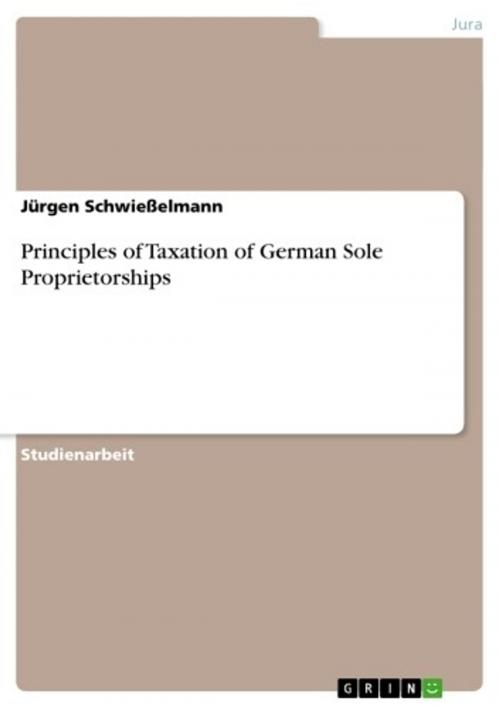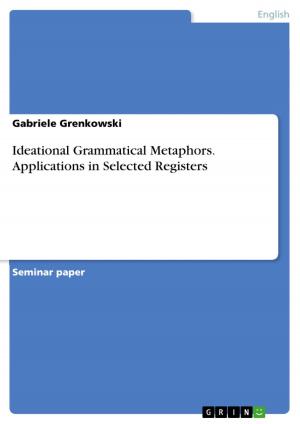Principles of Taxation of German Sole Proprietorships
Nonfiction, Reference & Language, Law, Taxation| Author: | Jürgen Schwießelmann | ISBN: | 9783640855926 |
| Publisher: | GRIN Verlag | Publication: | March 10, 2011 |
| Imprint: | GRIN Verlag | Language: | German |
| Author: | Jürgen Schwießelmann |
| ISBN: | 9783640855926 |
| Publisher: | GRIN Verlag |
| Publication: | March 10, 2011 |
| Imprint: | GRIN Verlag |
| Language: | German |
Studienarbeit aus dem Jahr 2010 im Fachbereich Jura - Steuerrecht, Note: 2,0, FOM Hochschule für Oekonomie & Management gemeinnützige GmbH, München früher Fachhochschule, Sprache: Deutsch, Abstract: This assignment is dealing with the topic Principles of taxation of German Sole Proprietorships. In the first part of the paper a brief overview of the available legal forms in Germany was given. Furthermore the criteria for the choice of a legal form were briefly presented. Based on these criteria the Sole Proprietorship was analysed. In a second step the basic principles of taxation of Sole Proprietorships were analyzed. It was identified that for taxation of sole proprietorships and partnerships the unit or transparency principle is used. The tax types income tax and company tax were analyzed. Considering these taxes the total tax burden for Sole Proprietorship was evaluated. Finally the transformation of the legal form as a way of tax savings was analyzed. It was shown that the change of the legal form has an impact on the taxation of the company. To evaluate the impact a tax charge calculation needs to be performed. In addition, other factors affecting the conversion of the legal form need to be considered.
Studienarbeit aus dem Jahr 2010 im Fachbereich Jura - Steuerrecht, Note: 2,0, FOM Hochschule für Oekonomie & Management gemeinnützige GmbH, München früher Fachhochschule, Sprache: Deutsch, Abstract: This assignment is dealing with the topic Principles of taxation of German Sole Proprietorships. In the first part of the paper a brief overview of the available legal forms in Germany was given. Furthermore the criteria for the choice of a legal form were briefly presented. Based on these criteria the Sole Proprietorship was analysed. In a second step the basic principles of taxation of Sole Proprietorships were analyzed. It was identified that for taxation of sole proprietorships and partnerships the unit or transparency principle is used. The tax types income tax and company tax were analyzed. Considering these taxes the total tax burden for Sole Proprietorship was evaluated. Finally the transformation of the legal form as a way of tax savings was analyzed. It was shown that the change of the legal form has an impact on the taxation of the company. To evaluate the impact a tax charge calculation needs to be performed. In addition, other factors affecting the conversion of the legal form need to be considered.















